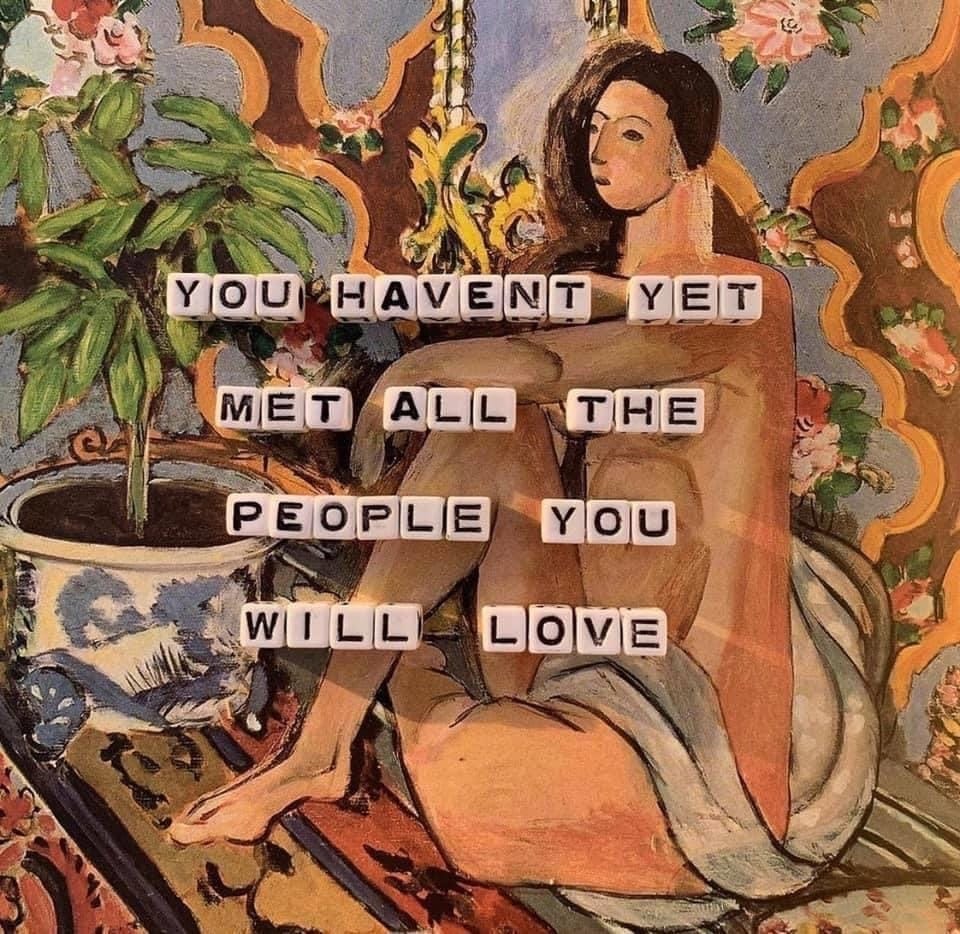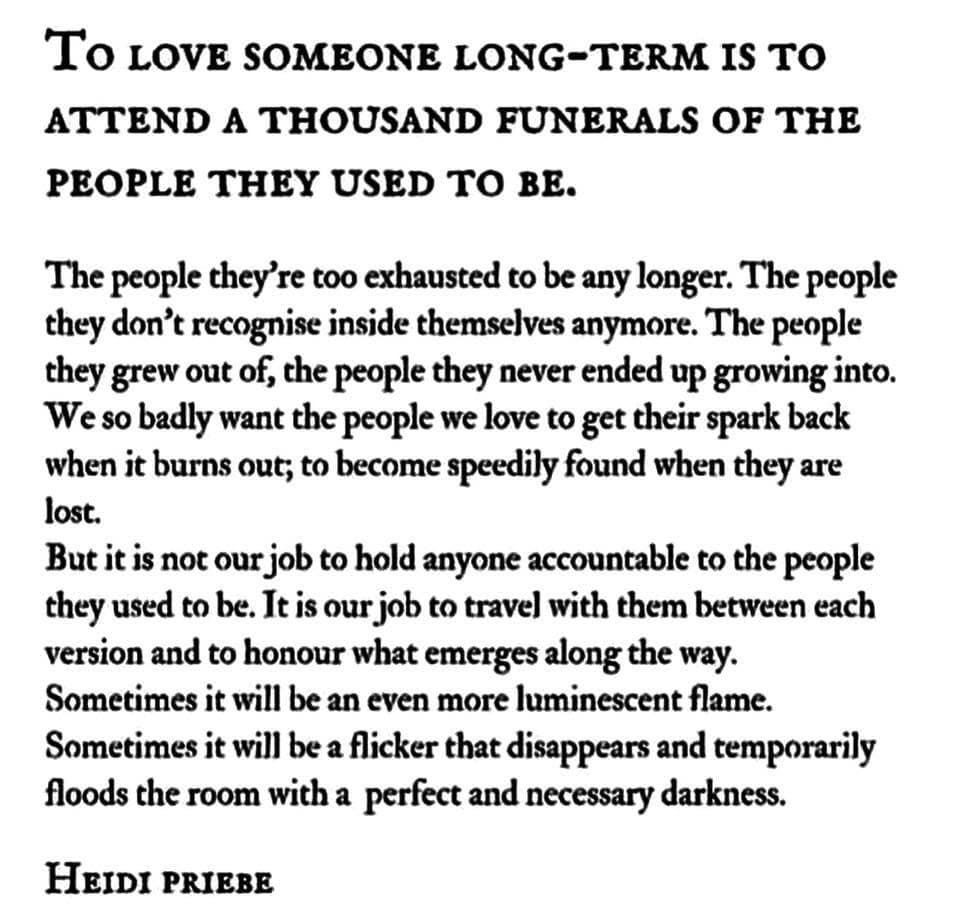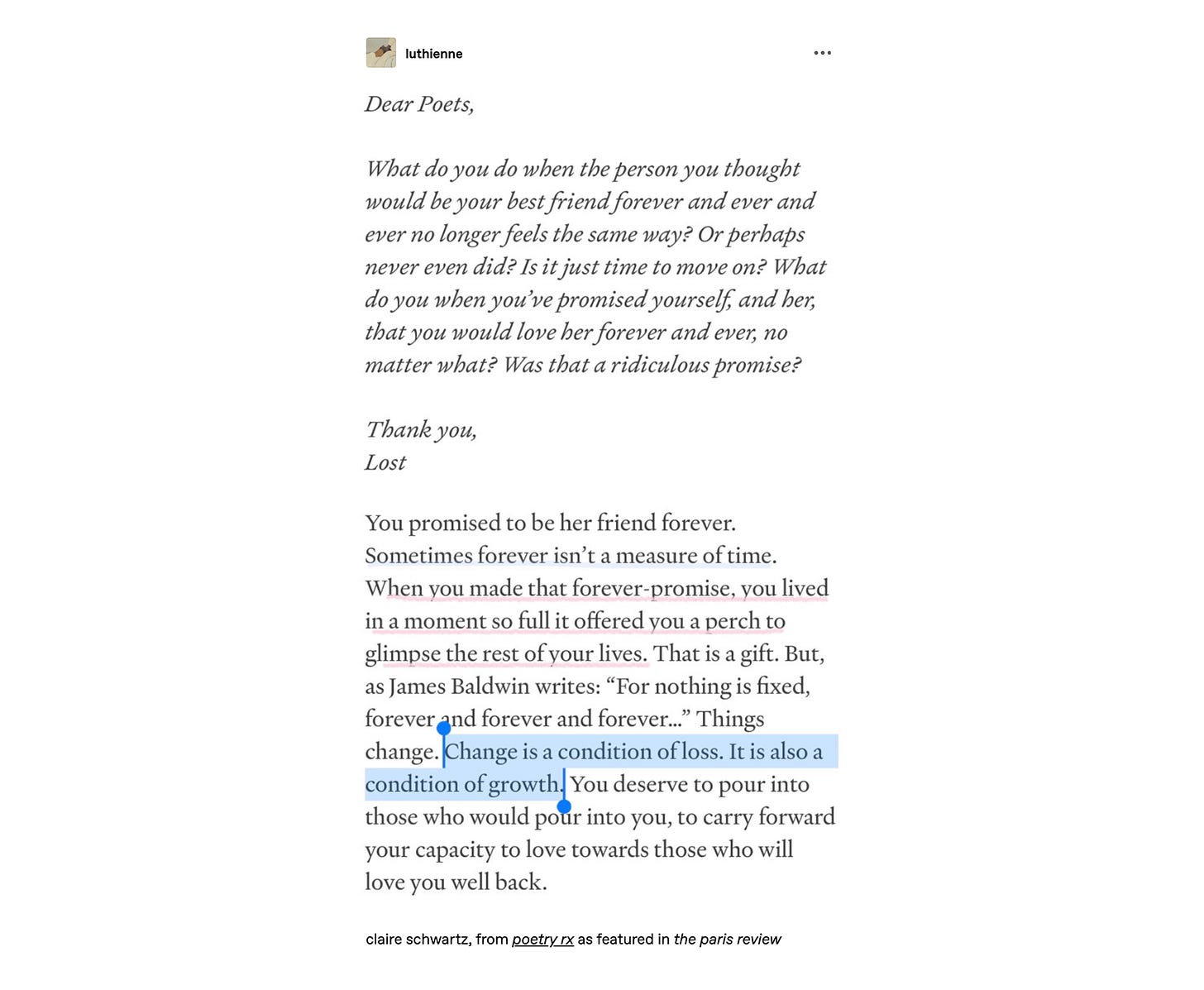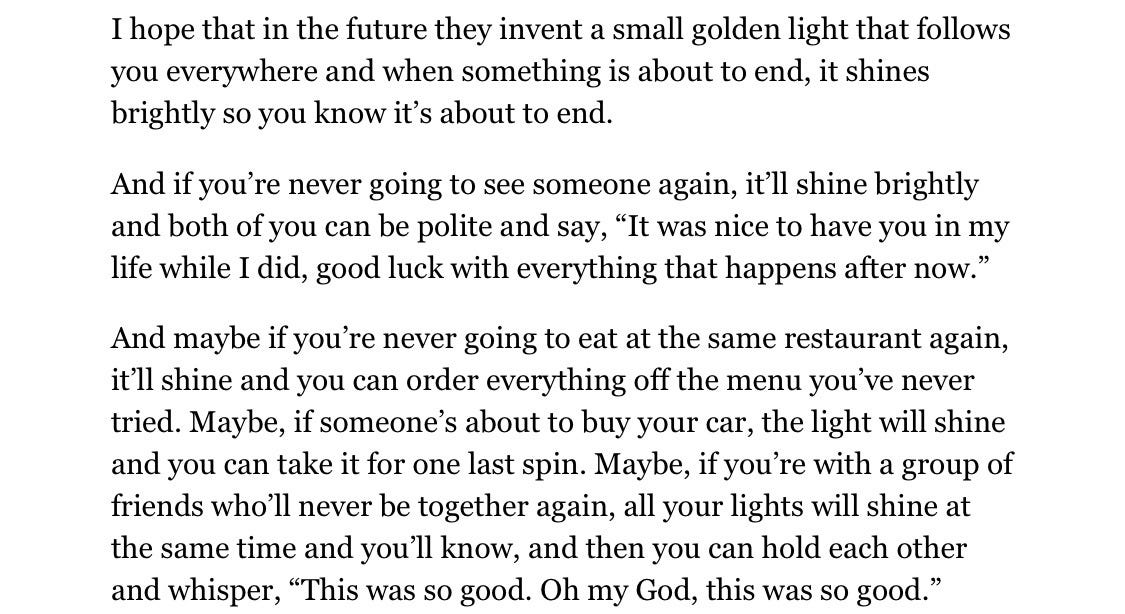expectations in friendships
maintaining long-term friendships in your 20s
Over the years, I’ve become disheartened by the number of friends I’ve lost. A few of these have been explosive breakups, but more often than not, my friendships fade away until we just like each other’s Instagram stories and ignore that we don’t talk very much. We become ghosts.
It felt like a cycle I couldn’t break. I would make friendships I thought would last, and then inevitably something would change and we’d lose touch. A lot of times I assumed it was my fault, for expecting too much or communicating too little, but if I’m honest, many of these relationships ended because they weren’t worth fighting for.
I thought for a long time that I just fell for the same personalities, that I picked people who would always be bad for me. And maybe in some ways I do. I’ve always been drawn to a certain type of person, as I think most of us are. But what I’ve learned is that most long-lasting relationships have little to do with compatibility and everything to do with commitment. And a lot of that commitment starts with expectations.
We have expectations for each relationship in our lives, and those expectations drive us to keep knowing a person. To understand them better, to be around them more, to fulfill our own needs through them. When we form a connection with someone, we want them to be someone specific for us. We imagine how they can benefit our lives, or how we can improve their life, and we start envisioning a future that we hope we get the chance to build.
Sometimes we just expect them to keep being who they’ve always been (Grandma will always bake you cookies and that’s all you expect) but sometimes we expect them to change and grow with us over time (You and your partner still want to be married even though one of you needs to move to South Dakota and the other needs to stay in Indiana - real example, by the way). Either way, when someone’s in our life, we need them to do something or be someone, otherwise they’re just another person in the crowd.
In some relationships, the expectations are not difficult to fulfill. You know that someone you met online once isn’t going to fly across the country every time you’re sad, you’d never expect that. But if you suddenly break up with your partner in a devastating way, you may expect your lifelong best friend to fly up for the weekend to comfort you because she did that the last time this happened. Your expectations are determined by past experiences with this person, and as time goes on your expectations should be more and more clear. If you’ve known someone for over ten years, you should have a firm idea of where your relationship is going and what the other person is doing to continue that relationship.
Of course, in adult relationships, these expectations should be communicated. Part of being an emotionally mature person is talking with other people about what you expect of them. Nobody can read minds as far as we’re aware, so the only way to build a healthy relationship with anybody else is to communicate expectations, feelings, resentments, desires, needs, and anything in between. And if you’re choosing to have a close relationship with someone for an extended period of time, you should make an effort to discuss things. Frequently.
(Is this easy? Absolutely not. But it is something to strive for.)
The problem here is that regardless of how grown up you may feel when you’re in your twenties, you’re still treating your relationships like you’re a teenager.
Since I’m not someone who dates, I put almost all my energy into maintaining friendships. And for reasons beyond me, I’ve always been someone who makes friends easily. Even though I was a shy kid and an introvert to boot, I always had a lot of people to talk to. I never considered myself “popular,” mainly because I never felt comfortable or confident in my skin, but the truth is, I did okay. I was never really alone.
(Apparently I’m a pretty interesting and fun person! Who knew!)
And yet somewhere along the way, I categorized myself as someone on the outside. Maybe this was because of my introversion, maybe it’s because I had social anxiety or I always felt like the weird girl in my friend group, maybe I just never quite related to my peers, but whatever the reason, I saw myself as the person who never fit in. And as a result of that, a lot of my core friendships growing up were built on the commonality that The World Doesn’t Understand Us.
I found people who weren’t popular, people who were a little different, people who I know now probably weren’t neurotypical or straight, people who fit the bill of being “non-conforming.” I liked underdogs. I liked oddballs. Because I empathized with sitting alone, and I have been the kid who was picked last in gym class. I didn’t want those people to ever be alone because I saw myself in them.
But eventually as I entered my mid-twenties, it became overwhelmingly difficult and utterly exhausting to befriend all of these people.
For a long time (and sometimes even now), I felt like I needed to be friends with every single person I crossed paths with. I wanted to make everyone feel loved and known by me. Many of the people I’ve met are genuinely fascinating people who I did and do want to get to know more deeply. I wanted everyone on my team because everybody is amazing in their own way. (And yes, I selfishly also wanted an army of people who cared about me. I like having friends. Sue me.)
But as these acquaintances piled up, I lost the ability to find true connection. Part of this is because it’s difficult to keep up with dozens of people, to actively engage and reach out and maintain a close relationship. But it’s also hard to find connection with people who don’t actually expect to have a close relationship with you. While many of the people I considered my friends had things in common with me - liked the same books, watched the same shows, shared common values - we didn’t always share the same commitment to each other.
Unfortunately, I expect every person I befriend to die for me on the battlefield of life because that’s what I do for my friends. But I’ve learned that not everybody feels that way. And not everybody is even capable of that, regardless of how much they enjoy my company. So oftentimes, you have to learn the boundaries of their expectations.
Friendship in your late-twenties is all over the place. With one person you’re building a foundation that is stronger than any relationship you’ve ever known - complete with emotional vulnerability, dedicated trust, and a level of honesty that borders on TMI. With someone else, you see them once every six months when your schedules line up. With another, you call them once or twice a year, and you wish you had a way of seeing them but you know that it isn’t feasible with your job, but you still consider them a close friend. And there are some people you text multiple times a day, upwards of five days a week, who know more about you than your mom, but you haven’t seen them in person in three years. Each of these people are meaningful and important to you life.
You have a list of people on your roster that you have high expectations for. You both have committed to being close friends, you have the ability to support each other, and you also have the emotional maturity to create some semblance of vulnerability. You trust the other person to Be There For You regardless of whether they live close or far away, but you understand that when they can’t actually be there, they’re there in spirit and will want to hear about it all later. You trust them to criticize you with kindness and to handle your criticisms with grace. These are your friends.
You have a similar list of people on your roster that you have low expectations for. Whether or not this is the fault of the other person, malicious or not, you know that you cannot count on them. This doesn’t mean you aren’t friends per say, and it doesn’t mean you don’t care for these people deeply, but you know where to set your expectations and you know that they cannot give you anything more than “hanging out.” These are maybe not your friends. (Sorry.)
It’s important to note that people bounce around these rosters frequently. We all gain and lose trust for any number of ways, and sometimes you cannot be a good friend to someone for a variety of reasons, so it usually isn’t anybody’s fault if they end up on the low expectations roster.
I also don’t think it’s a bad thing to be on low expectations roster. We need people to grab drinks with! We need people we can talk to twice a year and people who knew us in high school and people who tell us what’s been happening at the job we quit. Just because you have low expectations for someone or you can’t always be emotionally intimate with someone, it doesn’t mean you don’t love them or don’t want the best for them. But it might mean that you don’t uproot your whole life just because they ask you for help. It may also mean that you won’t be close friends with that person for the rest of your life.
It’s frustrating to me that the English language only has the one word for friend. It’s difficult to distinguish what kind of friend you’re talking about. How does one word explain so many unique and diverse relationships between people? This is why we sometimes use the term “best friend,” but I think even that does a poor job. While it isn’t necessary to label each individual, unique relationship, I do find it difficult to differentiate between friends and Friends.
What’s more, the concept of friendship has evolved so much over the years, especially now in modern times. Each generation treats friendship differently and sets different expectations. My grandparents never expected to hear from their long distance friends multiple times a day (if they even had many long distance friends to begin with). And yet if I don’t hear from one of my close friends who live halfway across the country for more than 24 hours I start to wonder if I hurt their feelings somehow. (There’s a whole essay waiting to be written about how modern technology has damaged our relationships as a whole.)
But whether it’s a result of modern technology, unprecedented expectations, or even just a lack of awareness, I think many people making friends under the age of 30 approach their relationships with short-term thinking.
It’s ironic because children and teenagers tend to be the ones who say “best friends forever,” but in some ways, that’s because the “forever” of childhood is only a few years long. The actual act of staying in a relationship with someone for decades is a lot longer and a lot more difficult than a teenager can comprehend. What feels like long-term to them is really just a short blip in their life. (I say, as if I’m not 28.)
If you’ve never been in a real long-term relationship - less because you haven’t met the right person and more because you haven’t been alive enough to recognize what long-term means - then how can you be expected to understand how you should act to maintain a long-term relationship? How are you supposed to understand what real trust looks like if you haven’t seen it in action?
Yes, the expectation when you care about someone is that you both want this to continue for as long as possible, but there are so many tools needed to make that happen. And the biggest tool, arguably the only tool, is emotional maturity.
“Emotionally immature people don’t step back and think about how their behavior impacts others. There’s no cringe factor for them, so they seldom apologize
or experience regret.”
― Lindsay C. Gibson, Adult Children of Emotionally Immature Parents: How to Heal from Distant, Rejecting, or Self-Involved Parents
I always considered myself a bad communicator, mainly because I don’t talk a lot and I have a hard time sharing my feelings. So, I’ve been working to improve that. However, for as much as I struggle to be emotionally mature, I think my overcompensation has benefitted me. I have had to actively learn how to be more emotionally mature, and that means I’m working to get better every single day.
There are a lot of people who do not take the time to learn about emotional maturity simply because they like to talk a lot and they assume that that makes them great at communication.
Like it or not, as an introvert who’s had to study communication and emotional maturity at length, I don’t think being talkative or even being confrontational makes you emotionally mature. I think it’s something everyone needs to work on and learn about, especially because emotional maturity is about more than just talking to someone. The other half of communication is listening and empathizing and owning up to your own actions. Just because you can tell someone your feelings are hurt, it doesn’t mean you’re good at apologizing when they tell you you hurt their feelings as well.
The truth is, when you’re a teenager or a twenty-something (and honestly, even on into your middle and late adult years), you just don’t know how to be emotionally mature. I mean hell, your brain doesn’t develop until you hit 25, so what about your heart? Emotional maturity is something everyone has to learn, even if you are good at talking or you’re great at confrontation or you think you’re better than everyone you know at communication. Emotional maturity takes work, and it’s important to put in the work so your relationships don’t suffer.
Part of what makes long-term relationships work - mainly I’m thinking about marriages as an example - is that you have to be brave enough to be vulnerable, honest, self-reflective, and receptive to criticism. You have to trust that when your partner communicates with you - positively or negatively - at the heart of it all, they care about you and are not actively trying to hurt you.
It’s easy as young people to immediately believe that any conflict is bad. If someone tells you that you hurt their feelings, it feels like the end of the world. Sure you feel bad that you hurt them, but don’t they know you didn’t mean to? How dare they not understand you! Either we get caught up in hating ourselves or we’re insulted that someone would criticize us, all the while forgetting that the other person loves us and only wants our relationship to last longer.
It’s important to be able to bring up your own hurt feelings, to apologize after hurting someone’s feelings, but I think the most important part of any relationship is the ability to get over the awkwardness we feel about starting an up-front conversation about what is happening in a relationship.1
Many of my friendships over the years have failed not because the other person wronged me or because I stopped caring, but because one or both of us did not have the capacity to be up-front. We couldn’t communicate expectations (or hurt feelings from falling short of expectations), and we failed to maintain our commitment to each other because we didn’t fight for it.
When you’re engaged to be married, you often go through couples’ counseling. This sometimes continues on into marriage. You spend a lot of time talking to your partner about specifics - about your finances, about how you want to handle raising a child, about how to deal with conflict in your relationship. Admittedly, not every person or couple does do that or does that well, but there is an expectation in such a long relationship that yes, you will fight, and yes, you will have to mediate that conflict, and yes, you will do almost anything you can to remain together and fix the problems that arise. At least, to me that’s what marriage and life-long partnership should be.
So why don’t we think like this in friendships?
I think there is a perception that friendships are dramatically different than a partnership. And in many ways, they are. With such a wide variety of relationships and different types of friendships, there are plenty of people you will call your friend who you would not trust to support you in the intimate ways of a partnership. That isn’t to say you don’t care for that friend or that that friend doesn’t want to support you when they are able, but a friend you see twice a year isn’t the same as a friend you see twice a month or even twice a week. It’s just different.
But I think the types of friendships I want to build, the long-term ones that last and support me throughout my life, are more like a partnership. At least in the sense that we should both be supported and we should be growing together in emotional maturity. That means having hard conversations, but trusting that the other person cares about you. It’s about reacting in love and having grace and compassion and understanding.
Of course, sometimes that isn’t possible. Sometimes it’s possible for a while and then someone breaks your trust and you are forced to distance yourself from them. It happens. It’s the risk you run with vulnerability and relationships in general.
One of the most frustrating parts about a friendship that is falling apart is that nagging thought in the back of your head: What do they think is happening here? I’ve spent so many nights wondering if the other person feels the same way I do. If they see me as the problem, as the bad friend, as the one that’s slipping away. Do they wish I would speak up? Do they wish I would leave? Have they even noticed that something’s different?
My biggest fear is a relationship where both of us want to talk about The Thing (whether that’s a conflict, a feeling, or just the way our relationship is changing) but neither of us do and so instead of growing together with intimacy and vulnerability…we just drift apart until we have nothing tying us together anymore. I’m more guilty than most of being avoidant, so often when this happens it’s my own damn fault. But I’m trying to remind myself that not everything is on me to fix.
It can be difficult to hold onto friends in your 20s because we don’t actively think about the longevity of friendships. Many people have a hard time being vulnerable, and even if you’re good at confrontation or emotional maturity, it takes two to tango. You can’t maintain a relationship if the other person refuses to engage with you. And just because you’re interested in a long-term, committed friendship, that doesn’t necessarily mean the other person is.
I don’t think everyone is destined to have deep philosophical discussions with their friends, and I understand that hey, some people don’t want to create the emotionally intimate friendships that I do. But the older I get, the more I’m noticing that we’re all lonelier than we let on, and I think if more of us had the option to form stronger emotional connections, we would.
People want to stay. And they want you to stay too.
Holding onto friendships is challenging as you get older. The longer a relationship goes on, the more it’s likely to change and you with it. Sometimes friendships aren’t meant to last longer than a year or two, and you have to be okay with that. There is meaning and purpose in short relationships. You don’t have to keep every single person you open up to. But there’s something to be said about commitment.
You cannot have true commitment if you don’t communicate with the other person.
The only way we will end the cycle of lost friendships, and frankly the only way we will grow closer with our trusted inner circle, is by both choosing to stay and choosing vulnerability. Keep your expectations in check, sure, but remember that the only way your expectations (and needs and desires) will get met is by communicating them with your friend. You can’t expect them to stick around if you don’t tell them you want them there. You can’t expect them to trust you if you don’t build that safe space for them. You can’t expect them to be your friend if you aren’t their friend first.
And hey, maybe stop assuming your friend hates your guts anytime they bring up conflict. I think it’d save all of us some time.
It’s important to note: for all my talk about emotional maturity and confrontation and being less awkward about upfront conversations, I am very bad at it. Still. I practice when I can, but I’m still learning and I wish I was further along than I am. I’m not perfect and I don’t believe I’m a good example of how to maintain long-term friendships. I know I’ve hurt many of my friends over the years due to my problems. So again, as stated above, something to strive for.










I remember the first time I had a big conflict with my platonic soul mate, I couldn't understand where the cracks lay and why we were arguing. The whole friendship was imploding and all I wanted to do was run. We talked, cried, talked, cried and resolved our issues at the end. At the end, the friendship is better for it and we are better communicators. It was one of the hardest things I had to do but it was also the best.
This was a great post. I’ve always struggled letting people know how i feel. I don’t want to be a bother, you know? Plus i’m also an introvert and sort of a loner. I like hanging out with my friends, but most of the time i like being by myself. It’s hard to balance it. To be honest, if they didn’t engage first, i might never see them lol. Pretty bad lol. I also don’t date, so being a good communicator has never been a top priority to practice. Also, i’m much better at writing down my feelings and speaking them. I guess we’re all a big mess, trying to get better every day.